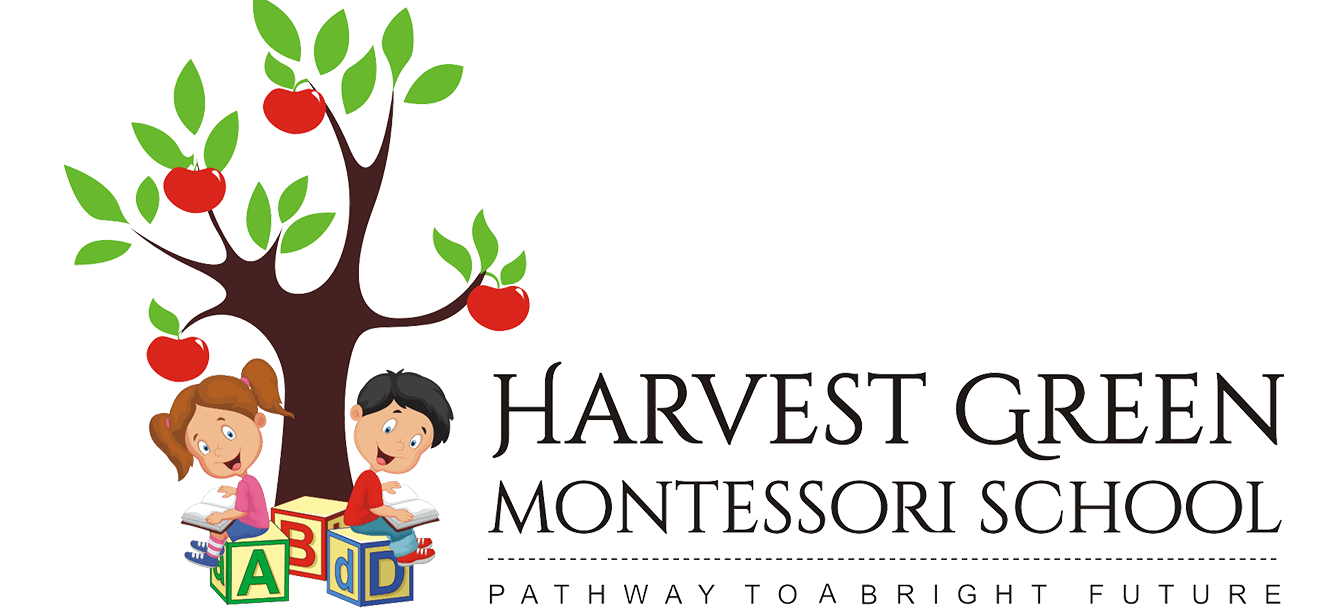Welcome to Harvest Green Montessori School!
Curriculum

Curriculum Program
The Montessori Curriculum is an innovative learning framework that incorporates specific learning outcomes and knowledge skills that align with children’s developmental needs and interests. There are five main areas of learning: practical life, sensorial, mathematics, language, and culture. As children progress through the Montessori curriculum, they encounter more challenging learning materials that are appropriate to both their age and skill levels. In this way, the Montessori Curriculum emphasizes learning as a process that cannot be determined through a child’s age.

Grace and Courtesy
Grace and Courtesy in reaction to the young child's need for order. Primary Class is the perfect place to begin these exercises in Grace and Courtesy because the child at the end of the first plane of development is not yet self-conscious and doesn't realize what he/she is doing at times. Grace and Courtesy lessons are given to each child in the environment and usually in a group. This allows the child to have a clear understanding and a place to perfect himself/herself with others.
Practical Life
Practical Life is the true heart of a Montessori classroom. By working on real-life tasks, children develop independence, coordination, and concentration through exploring daily activities such as eating, cutting, polishing, sweeping, dressing, and cleaning. Teachers demonstrate these tasks that explore caring for the environment and the self, encouraging responsibility, and promoting self-esteem.


Sensorial
Sensorial materials in the Montessori classroom are made to help the child explore the world through his/her senses. Each sensorial material isolates one quality: color, weight, shape, texture, size, sound, and smell. The materials help children differentiate between information to categorize and relate new information to what they already know. The Sensorial Materials are largely self-correcting, so the child can accomplish most of these exercises alone.
Language
Language development is vital to human development. The Montessori environment is rich in oral language opportunities, allowing the child to experience conversations, stories, and poetry. For example, sandpaper letters help children link sound and symbol effortlessly, encouraging the development of written expression and reading skills. To further their reading development, children start the study of grammar. Language experiences encourage children to master, and blend sounds to build words.


Mathematics
Early mathematics activities transform ideas into actions using concrete learning materials and making abstract concepts clear to the learner. These experiences explore the underlying fundamentals of algebra, geometry, logic, and statistics. They also help explore operational principles such as addition, multiplication, division, and subtraction.
Geography
History and geography begin with the study of maps and the two hemispheres of Earth. This becomes more and more detailed as children will learn about countries and Continents. The very young child will use the wooden puzzle maps as puzzles, but the older child can use the pieces as a guide as he makes his own maps, labeled with his own writing when he is ready.


Science and Nature
Children are introduced to many topics and learn to make predictions in their Science and Nature activities. The land and water work which introduces the concepts of Lake and Island, is closely connected to the geography curriculum. Children learn about volcanoes, the layers of the Earth and the solar system. Children will go on nature walks and then research the leaves and seeds they have found. Activities include Sink or Float, Living or Non-Living, Magnetic or Non-Magnetic, Land and Water
Arts
Art is one of the many way’s children express themselves. Art is a way for children to communicate their feelings. It is through art that children develop their fine motor skills. In the Montessori environment, we provide open-ended art activities that help children explore and use their creativity.

